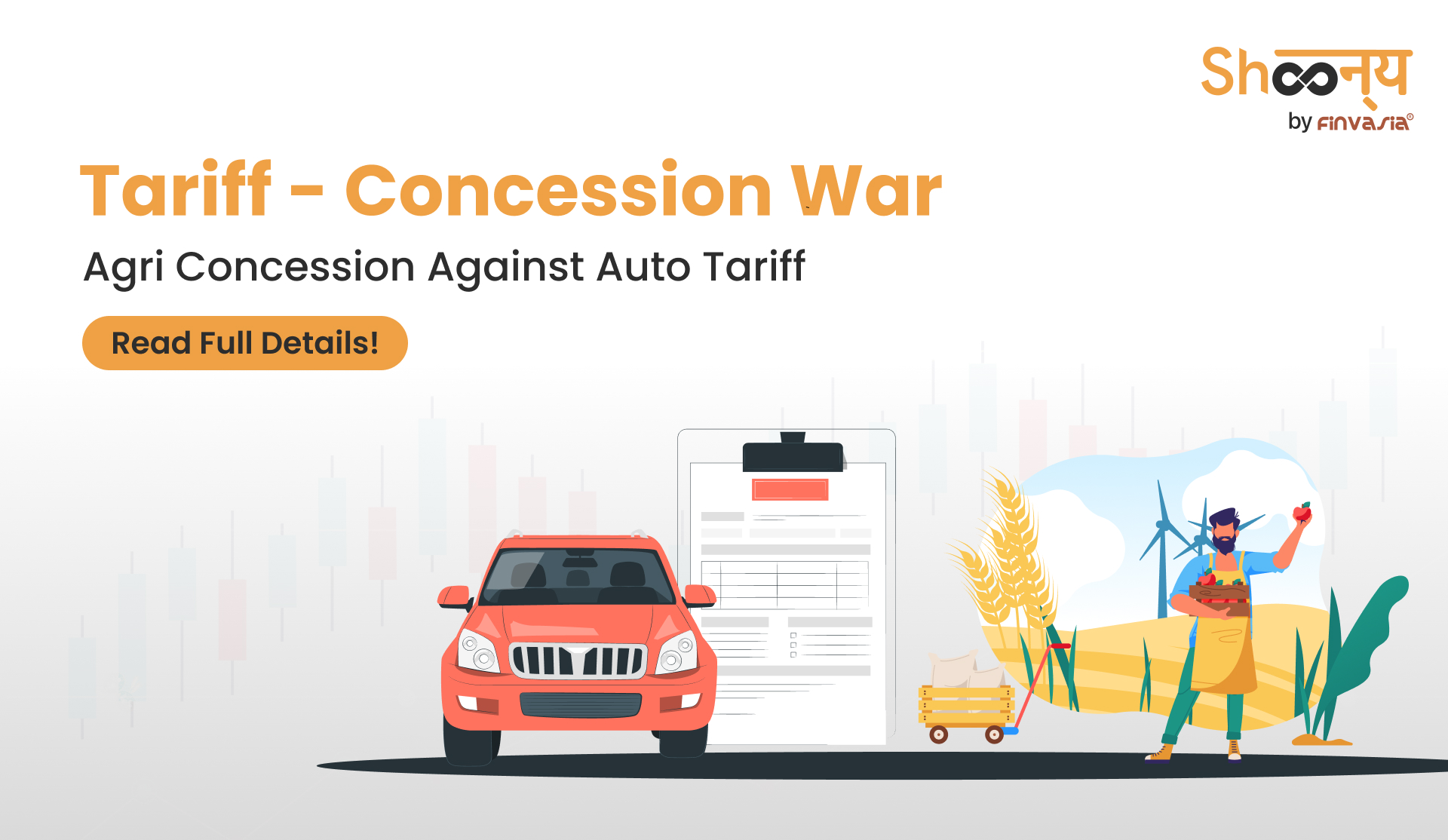India Seeks Concession on Agri Products Against Auto Tariff Cut

The tariff war between the US and India is getting real every day. While both nations are on good terms with each other and have a bilateral trade deal in place but they are slapping tariffs on each other, which is making the entire stock market go on its knees. India has been in talks with the US about lowering tariffs on the US-made automobiles however, the former has asked the US to offer concessions on Agri products out of the negotiations for the bilateral trade agreement they have. Both governments are trying to fast-track the negotiations and are holding meetings with the different ministries, such as the agriculture ministry, the finance and commerce ministry. They are hoping to close the bilateral trade agreement by September.
How Concession on Agri Products Will Work?
Each of the ministries mentioned above is planning and submitting the list of products that they think should be away from the trade deal negotiation. The key agricultural commodities are being listed on which the concession will be applicable.
On top of that, they are also planning to reduce the tariffs in a phased manner so that the domestic markets can adapt, and at the same foreign businesses can explore our markets.
This is a part of the $500 billion bilateral trade deal where both countries will trade with each other worth $500 billion. The Indian government made this very clear that they are not getting into the deal if it doesn’t benefit them as well as the US. If the US does not offer concessions on the key agricultural goods, then reducing automobile tariffs can be off the books as per a Second Government Official’s statement.
Why is this important?
In the calendar year 2024, India exported agricultural products worth R $6.04 billion to the US. So, imposing tariffs on agricultural commodities can harm Indian agricultural exports to a great extent, as agriculture is the primary source of revenue for half of the nation.
It was just four years back when India opted out of the Regional Comprehensive Economic Partnership (RCEP) free trade agreement, which involved the Association of the Southeast Asian countries, as the deal was harming the farmers and the dairy sector in India.
Given the sensitivity of the agricultural sector in India, it is crucial to safeguard the interests of the farmers and the businesses involved in this sector.
Current Tariffs Imposed by India
The US has been asking India to entirely remove the tariff on the automobiles imported from the US. To which the nation has asked for concessions on agricultural goods. That said, India has also agreed to reduce tariffs on some particular US imports such as apples, cranberries, and walnuts.
However, India imposes higher tariffs on Vegetable Oils, where the tariff goes up to 45%, on natural rubber, up to 70%, alcoholic beverages, on which 150% is charged. On apples, corns, and motorcycles, a 50% tariff is charged, on other automobiles, and flowers, a 60% tariff is levied. A 100% tariff is levied on coffee, walnuts, and raisins. These tariffs are bothering the US government for a long even though India has agreed to reduce tariffs on a few of the items.
Wrapping up
Since both governments are working towards the Bilateral Trade Agreement preparation by this Autumn, it will be interesting to see how they come to a common ground and how this trade agreement will benefit the businesses in both countries, and how it affects the stock market’s investments.
Source: CNBC TV18
______________________________________________________________________________________
Disclaimer: Investments in the securities market are subject to market risks; read all the related documents carefully before investing.








